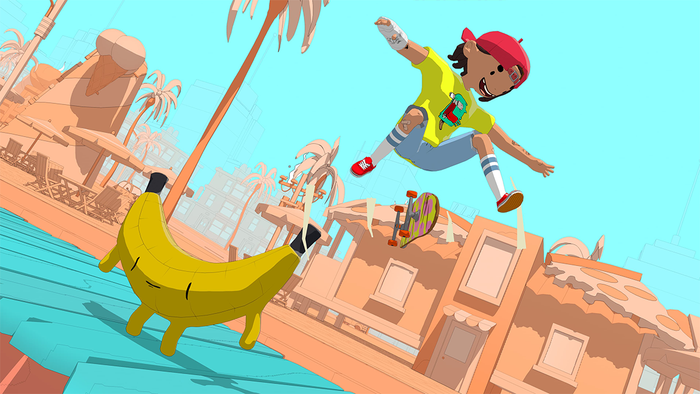Analysis: I Love You Just The Way You Are
Lewis Denby looks at cult games like Deadly Premonition and The Void for Gamasutra, examining why some games shine not through their perfection -- but via the imperfections that give them soul.

[In this Gamasutra analysis piece, Lewis Denby looks at games like Deadly Premonition and The Void to examine why some games shine not through their perfection -- via the imperfections that give them soul.] Back whenever it was released, I wrote a review of Gears of War 2. It was the first time, I think, that I was presented with a real critic’s paradox, and the first time I started to seriously think about how games operate and how they affect me personally. Gears of War 2 is, undoubtedly, an enormously well constructed game. It’s pieced together with real precision, the action is as tight as anything, the production values sky high. As a traditional games reviewer, I felt compelled to award it a high mark. But as both a player and a critic of a form, I didn’t like it. I enjoyed myself, but I didn’t like it. Blasting the Locust hordes was fun, sure. But there was something cold and distant about its unrelenting competence. It felt like a mechanical construction, something created by a sort of games development machine, purposefully built to churn out high-durability action fodder for the masses. Which, of course, it is. And there’s a place for that. But I still came away from Gears 2 disappointed, having just spent several hours in the company of a game completely devoid of character or soul. I’ve been thinking a lot about imperfection in video games over the last few days. Specifically, since Deadly Premonition was confirmed for a European release. I’ve never played Deadly Premonition, but everything I hear about it makes me desperately eager to do so. As a game, people say, it’s broken beyond belief. But as an experience, there’s nothing else like it. Just to give you an idea of how much this game split opinion upon its initial release: IGN called it “awful in nearly every way,” while Destructoid awarded it 10 out of 10. To my mind, more games should do this, just as so much cinema and music does - but that’s probably a topic for another day. Deadly Premonition, from what I understand, is basically a video game homage to early ‘90s drama ‘Twin Peaks’. It’s an open-world survival horror game which lifts several plot elements straight out of David Lynch’s seminal television series, often makes no sense, looks an entire console generation out of date, and occasionally just refuses to work. But everyone I know who’s played it says there is just something about the game that provokes a reaction, be that a positive or negative one. Through all its imperfections - perhaps because of them - it shines, in its own very special little way. The more I think about this, the more I think this applies to ‘Twin Peaks’ itself. It broke all the rules, and as a result emerged as something completely unexpected and original. It had a real soul running through its nonsensical storytelling and utterly bizarre characters, and some of the filmic techniques went so against the grain that the show inherited a directorial style all of its own. Having not played Deadly Premonition, I can’t make a direct comparison. But what I will compare ‘Twin Peaks’ with is Pathologic. Released in its home nation of Russia back in 2005, and in English-speaking territories a year later, it’s an unsettling, low-budget, first-person horror adventure, in which the player attempts to free an isolated town of a crippling disease which is so forceful that even the buildings are dying. The game has a lot of problems. Its engine, even with the details maxed out, looks like it’s from five years earlier. The enemy AI doesn’t stem much beyond ‘lock on and charge’, while the friendly AI just stands still. The town, an open-world environment, is so abysmally laid-out that even a map isn’t helpful. And perhaps most crucially, the English localization is just terrible. One character, throughout the whole game, referred to me as his “oinon”. I have no idea what that means. For hours I thought he was calling me an onion, and wondered if I was supposed to be playing a French person talking to a xenophobe. You’d think there wouldn’t be any excuses for such crippling problems, but actually, I’m going to attempt to excuse them now by claiming that Pathologic is perfect. All its blemishes give it character, and the game beneath that is so unusual, so determinedly difficult and remarkably unfriendly. It’s memorable beyond anything else I’ve played. These problems were obviously unintentional, but there are some very specific underlying systems in Pathologic that are equally obtuse. The town’s economy is nightmarish, meaning you can sell an item one day, go to buy it back the next day, and find its price has increased tenfold. You have several different gauges to manage - health, fatigue and suchlike, but also reputation meters and all sorts that have to be maintained if you want to be successful. And all the time, there’s a clock running down. You have twelve days to save the town, and you must save one important character every day. Fail to do that, and you’ve basically thrown away all hope. It’s unfathomably difficult, but that difficulty is purposeful, and it works - especially intermingled with the surreal presentation. And developers Ice-Pick Lodge took this ideology into their next project, The Void, a strange resource management game that deliberately sets out to confuse the player, and confound expectations. You begin The Void with no idea who you are, where you are, or what you’re supposed to do. Clambering over some surreal architecture, you eventually meet one of the Sisters - strange, hyper-sexual female apparitions who beg you to help them by giving them Colour. Colour is the entire life force of this otherwise desaturated world. You need it to live, but sharing it with the Sisters, you’re told, will free them from oppression, and allow you to progress. Except after a while, the game suddenly and without warning punishes you for doing this. The Brothers turn up - big hulking hybrids of flesh and metal - and tell you you’re doing it wrong. They threaten you. Sharing Colour upsets the balance of this world, they say. The Sisters are just addicts, and are playing you for a fool. And anyway, you’re one of the Brothers, apparently. You need to do what they say, if you truly want to understand the Void. And, well, what do you do? The Sisters say the Brothers, who they’re terrified of, are lying. The Brothers say the Sisters, who are destroying the world, are using their sexuality to manipulate you. The game doesn’t make it clear who’s telling the truth until long past the point of no return, and the game has no troubles ruining several hours of progress should you make the wrong decision. It’s an absolute nightmare. I can’t imagine you’d meet many games developers who’d call that good game design. Confusing the player is pretty much the biggest red light in the medium. It’s just not the done thing. If you get horrifically stuck in a game, that’s called bad design. If you don’t know what you’re supposed to be doing or why you’re supposed to be doing it, something’s gone wrong. Except, in The Void, it hasn’t gone wrong. It’s gone spectacularly right. The Void is remarkable. There are other developers toying with expectations and not shying away from breaking the rules, of course. But it’s Ice-Pick who have done this so resolutely. From what I understand, Access Games have powered in the same direction with Deadly Premonition. Pathologic and The Void, despite initially frustrating me, have since landed among my favorite games. And to these studios who somehow imbue their games with such distinct character, blemishes and defects and all, I say: please don’t ever change. [Lewis Denby is Executive Editor of BeefJack.com, as well as word-writer extraordinaire for anyone who’ll give him some pennies for his trouble. He never did manage to complete The Void - but that's fine.]
About the Author(s)
You May Also Like







